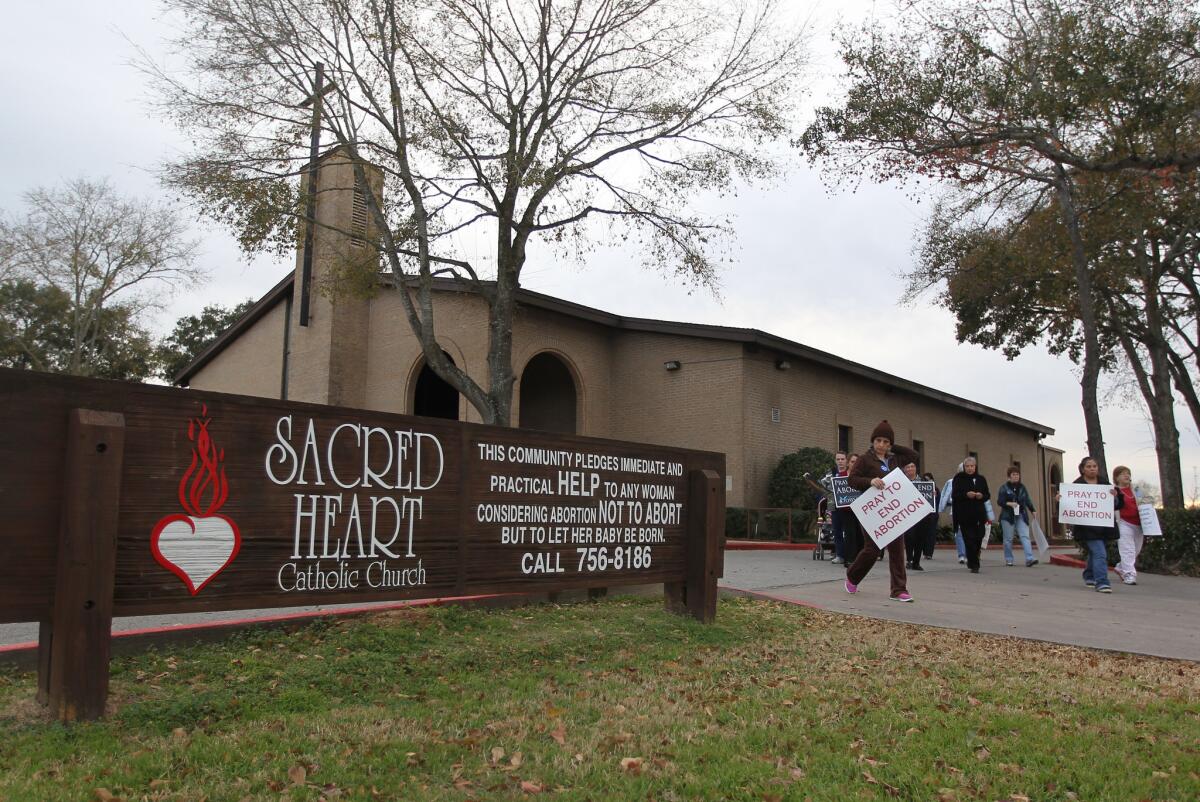Legal attacks on abortion getting some victories but losses too

With it doubtful the Supreme Court ruling legalizing abortion will be overturned any time soon, opponents of abortion have been attacking it piecemeal, passing legislation to make it more difficult to obtain the procedure.
The tactic was vividly on display Friday as judges took up the issue in Arkansas and North Dakota. The results, echoing legal battles in other states, were mixed.
In Arkansas a federal judge called a key portion of an antiabortion law unconstitutional. However, the judge upheld other parts of the law. As a result, observers of the debate say, abortion opponents will continue to support state-by-state legislation to chip away at Roe vs. Wade, the Supreme Court ruling that egalized abortion.
“They’re trying to do what they can’t do outright,” said Bettina Brownstein, a cooperating attorney with the ACLU of Arkansas. “They can’t outright get a ban. They can’t, as a matter of fact, say when viability [of a fetus] occurs. They’re chipping around the edges here.”
On Friday, U.S. District Judge Susan Webber Wright ruled that viability — or the fetus’ ability to survive outside the womb — was the determining factor in abortion law and that Arkansas’ law banning nearly all abortions after 12 weeks was unconstitutional. Viability is usually expected around 22 to 24 weeks, Wright noted.
“The Supreme Court has … stressed that it is not the proper function of the Legislature or the courts to place viability at a specific point in the gestation period,” Wright wrote. She said the law “impermissibly infringes a woman’s 14th Amendment right to elect to terminate a pregnancy before viability.”
But the law’s supporters found a silver lining in the ruling. Wright left intact a portion mandating that doctors perform an ultrasound and notify the pregnant woman if her fetus has a heartbeat at 12 weeks.
Abortion opponents secured another victory this month in Texas, where two abortion clinics closed down, saying they were unable to comply with a new state law. The law restricts the type of drugs that can be used to induce an abortion, adds a requirement that physicians who perform the procedure have hospital admitting privileges within 30 miles of their clinic, and blocks abortions after five months of pregnancy.
“Women deserve the higher safety standards for both clinics and doctors mandated by [the law], and we applaud the closures of clinics which cannot or will not comply,” Kyleen Wright, president of Texans for Life Coalition, wrote in an email to The Times.
The law is being challenged in federal court but remains in effect pending a decision.
Supporters of abortion rights, meanwhile, scored a victory in North Dakota on Friday, the same day as the Arkansas ruling.
At issue was a new state law requiring that physicians performing abortions have hospital privileges. North Dakota officials and the Red River Women’s Clinic in Fargo announced that doctors at the clinic would maintain such privileges.
Again, the result is mixed. Although the Fargo clinic will continue to operate, the restriction essentially eliminates the possibility of having an abortion clinic in rural areas of the state, critics argue.
In Arizona meanwhile, abortion providers are suing to block a law that limits the use of medications that can be used to induce the procedure. Similar laws have been struck down in Oklahoma and North Dakota but upheld in Ohio and Texas.
According to the Guttmacher Institute, a research organization that supports reproductive health services and abortion rights, 22 states enacted 70 abortion restrictions in 2013. That makes it the second biggest year for abortion restrictions after 2011, when a wave of tea party conservatives gained influence and more than 80 restrictions were passed.
Conversely, five states increased access to abortions, sex education and emergency contraception last year.
Follow LATimes National on Facebook
ALSO:
Tennessee judge: Gay marriage bans will be ‘footnote’ in history
Mega Millions jackpot hits $400 million. No record but who cares?
Texas father shoots boy, 17, to death in teenage daughter’s bedroom
Twitter: @josephserna
More to Read
Sign up for Essential California
The most important California stories and recommendations in your inbox every morning.
You may occasionally receive promotional content from the Los Angeles Times.











